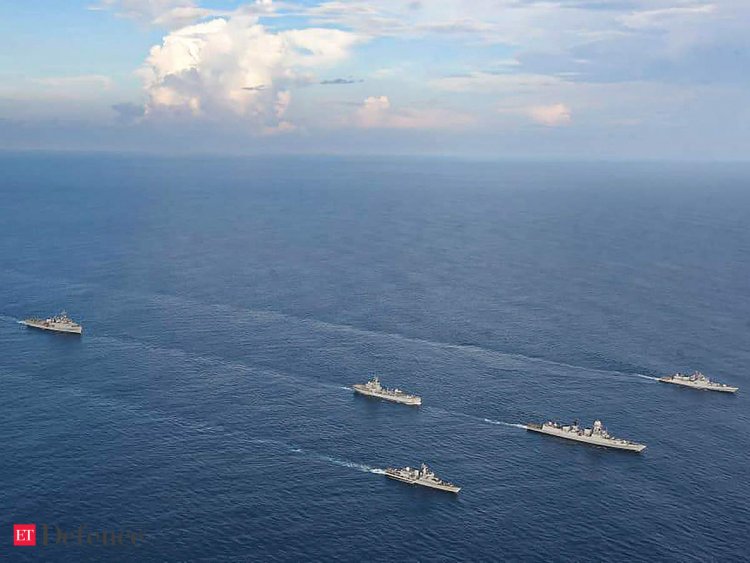INDIAN OCEAN: CHINESE MOVES AND INDIA’S COUNTER

The Indian Ocean, in particular the Western Indian Ocean, is important for India considering 95 per cent of its oil and trade flows through it. The growing naval presence of China in the Western Indian Ocean, is a direct challenge to the region’s status quo and India’s sphere of influence, writes Aparajita Biswas (Professor and Director of the Centre for African Studies, University of Mumbai).
China “is strengthening its relationships with the East African littoral and island states with its naval presence in the region. The foundation of these relationships rests on massive economic investments in these states and attempts to influence the policies of their governments.”
Chinese assistance with projects such as ports, roads, railway and pipelines, has generated goodwill Kenya. In 2017, China built its first overseas naval base in Djibouti.
In Mauritius, “despite India’s strong relations and powerful historical ties, China has been able to penetrate Mauritius with massive financial support to fulfil ‘Vision 2030’, a project that aims to place Mauritius among the league of high-income countries by 2030. In return, Prime Minister Pravind K. Jugnauth welcomed China’s BRI in his country and offered support to the ‘One China’ policy.”
India’s counter measures
India response has been to develop or revive “several forms of bilateral and multilateral cooperation platforms with the Indian Ocean coastal states……..Much of the emphasis has been on developing relationships with small states at or near the key entry points to the Western Indian Ocean such as Mauritius, the Seychelles and Oman. Some of these states have long seen India as a benign security provider and have maritime policing needs that New Delhi can fulfil. India established its first overseas surveillance facility in Madagascar……India is also looking at developing another monitoring facility at an atoll it has leased from Mauritius to strengthen its naval contacts with Mozambique and the Seychelles. Additionally, the Indian government has been promoting the ‘Security and Growth for All in the Region’ concept since 2015 — a counter-move against China designed to revive India’s ancient trade routes and cultural linkages around the Indian Ocean. This represents a logical shift in India’s foreign policy towards coastal East African and littoral states and offers an alternative vision to China’s Maritime Silk Road. Much to China’s irritation, Indonesia has granted India economic and military access to the strategic island of Sabang at the northern tip of Sumatra to undertake port-related infrastructure under SAGAR. Sabang is close to the north-western entry point of the Malacca Straits through which passes almost 40 per cent of India’s trade.”
India has “also signed a defence agreement with France, the biggest Indian Ocean maritime power. The logistics agreement with France will give India access to the strategically important French bases in Djibouti in the Horn of Africa and Reunion Islands near Madagascar. Similar agreements have been signed with Japan and the United States of America that will help India receive access services in Japan’s overseas base in Djibouti as well in Diego Garcia, the biggest American base in the Western Indian Ocean region.”
















